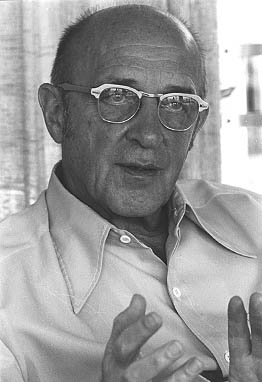What I am is good enough if I would only be it openly.

"Carl Ransom Rogers" was an influential American psychologist and among the founders of the Humanistic psychology/humanistic approach (or client-centered approach) to psychology. Rogers is widely considered to be one of the founding fathers of psychotherapy research and was honored for his pioneering research with the Award for Distinguished Scientific Contributions by the American Psychological Association (APA) in 1956.
The Person-centered therapy/person-centered approach, his own unique approach to understanding personality and human relationships, found wide application in various domains such as psychotherapy and counseling (Person-centered psychotherapy/client-centered therapy), education (student-centered learning), organizations, and other group settings. For his professional work he was bestowed the Award for Distinguished Professional Contributions to Psychology by the American Psychological Association/APA in 1972. In a study by Haggbloom et al. (2002) using six criteria such as citations and recognition, Rogers was found to be the sixth most eminent psychologist of the 20th century and second, among clinicians, only to Sigmund Freud.
If you enjoy these quotes, be sure to check out other famous psychologists! More Carl Rogers on Wikipedia.The only person who is educated is the one who has learned how to learn - and change.
The very essence of the creative is its novelty, and hence we have no standard by which to judge it.
When I look at the world I'm pessimistic, but when I look at people I am optimistic.
The good life is a process, not a state of being. It is a direction not a destination.
The facts are always friendly, every bit of evidence one can acquire, in any area, leads one that much closer to what is true.
If we value independence, if we are disturbed by the growing conformity of knowledge, of values, of attitudes, which our present system induces, then we may wish to set up conditions of learning which make for uniqueness, for self-direction, and for self-initiated learning.
Copyright © 2024 Electric Goat Media. All Rights Reserved.